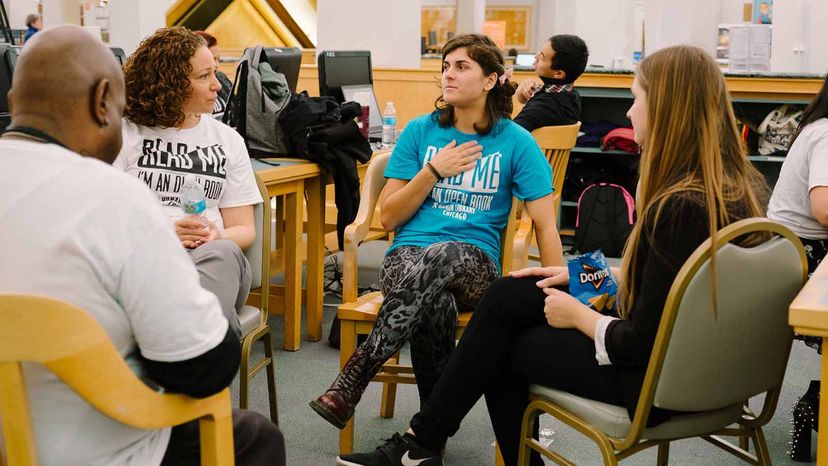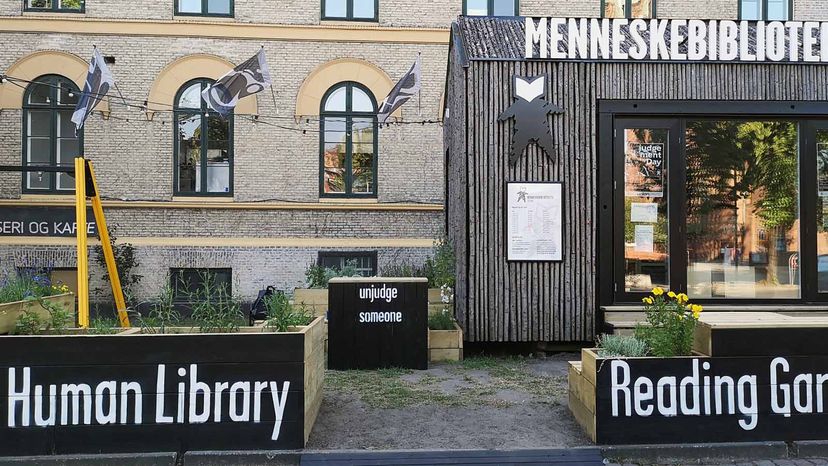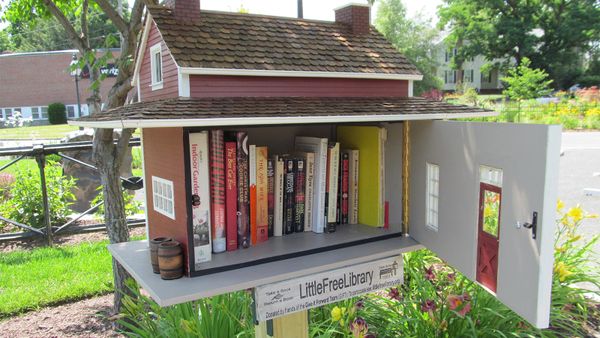
At the turn of the millennium, Ronni Abergel, his brother Dany Abergel and a few other colleagues, developed a project called the Human Library for a festival in Denmark. (Being Denmark, the library actually was called Menneskebiblioteket, which is very fun to say.)
Their idea was that human beings would be the "books" that other people could check out for a set amount of time. During that time, the borrower could ask the book anything they wanted.
Advertisement
The books were people from all different demographics and lifestyles who were willing to share their experiences to challenge stereotypes.
That small festival project ran for eight hours a day over four days with 50 books — that is, humans — available for checkout. Now it's an international phenomenon with libraries in Asia, Africa, Australia, North and South America, and Europe.
The Human Library still has its headquarters in Copenhagen, but Human Libraries have been held on every continent on the planet. The library also has "book depots," which are like mobile libraries that visit towns or events.

Advertisement
